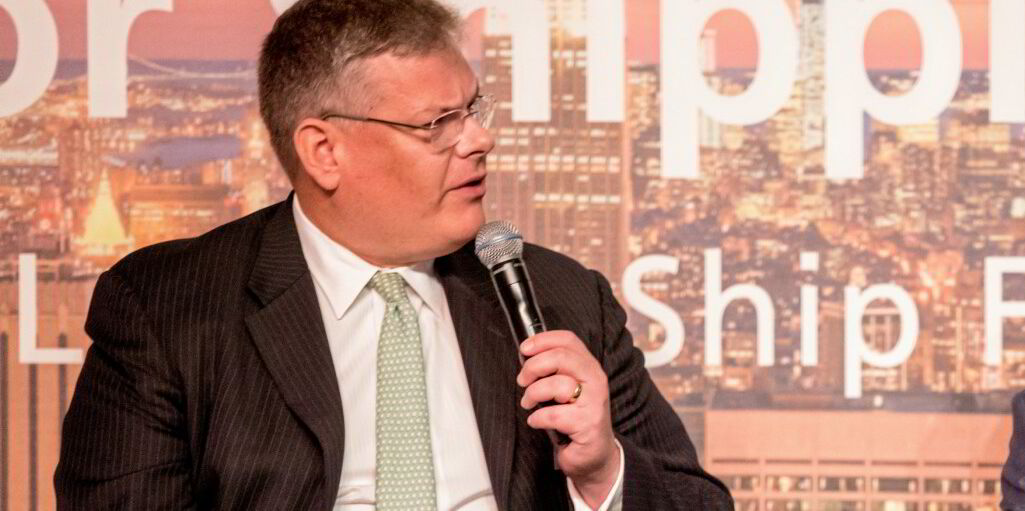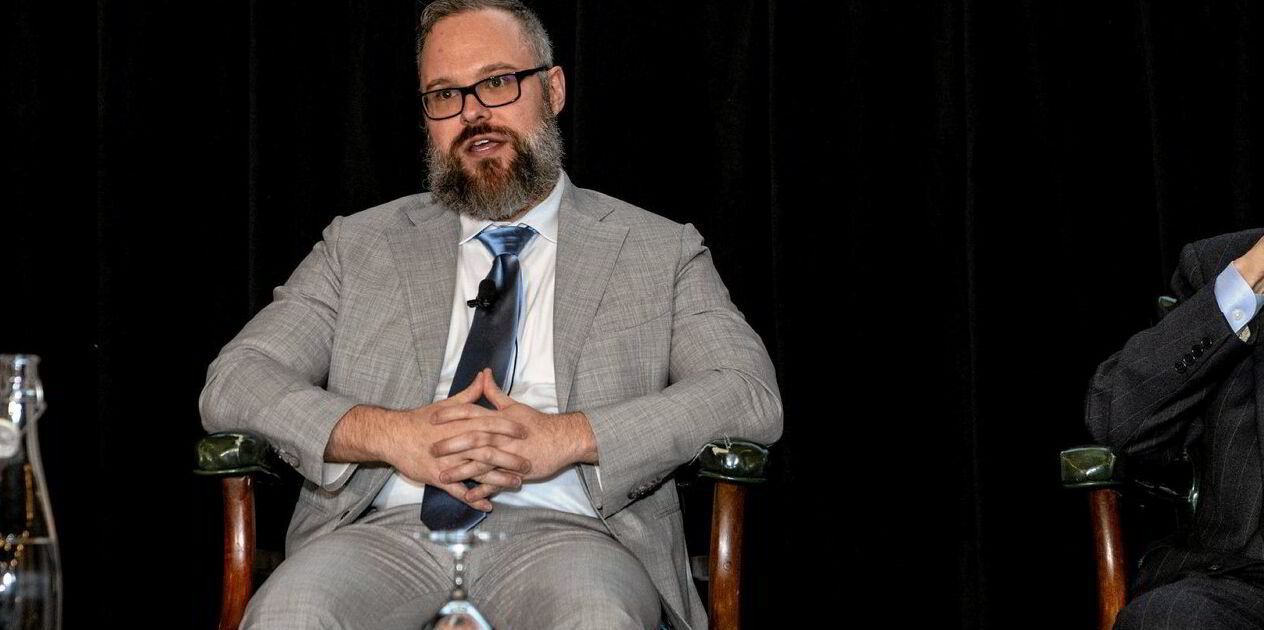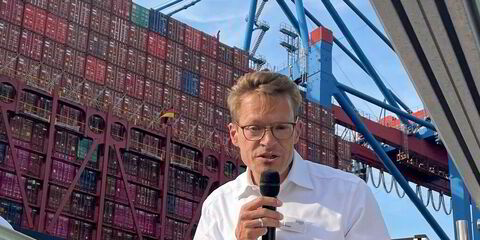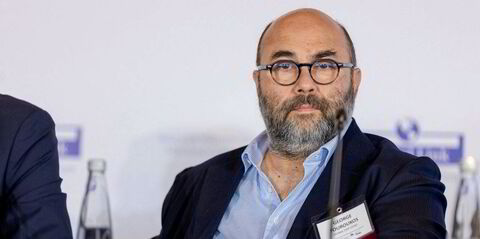Let’s call this one a win for shipping.
Streetwise can report that Deutsche Bank’s in-again, out-again deliberations over what to do with research coverage on public shipowners have arrived at a conclusion that keeps the bank “in”.
The good work of bright young analyst Chris Robertson — and some strong lobbying efforts by certain public shipowner management teams — have played a part in what one source described as “an about-face” by the DB brass, we are told.
The decision was music to the ears of some of those same shipowning executives this week as word of the turn began to ripple through ship finance channels.
Whether you view that as a change of tack or rather staying the course, it’s a development that also comes as good news for Robertson, who has been helming the boat for what remained of Deutsche Bank’s shipping coverage.
Streetwise has been told that, after two months of deliberation, the bank has given Robertson leave to restore its coverage to where it was before senior transport analyst Amit Mehrotra departed on 17 May. Robertson served as Mehrotra’s deputy with a shipping focus.
We’ve also heard the word “expand,” and so have some in shipping’s C-suites, which means watch this space as Robertson gears up for his next move.
Robertson himself was playing it close to the chest when contacted by Streetwise this week. He revealed only that his current title — “lead shipping analyst” — is one that he hasn’t held before.
We asked if he could explain that. But in a follow-up message, he said the bank prefers not to go into more detail for now.
“Please note that I have continued coverage of New Fortress Energy, Golar LNG, Excelerate Energy, International Seaways and Scorpio Tankers, which all have touch points in the maritime shipping and marine-oriented LNG infrastructure sectors,” Robertson added.
That may be it for now, but we expect Robertson will have more news for us in the coming weeks.
Let’s turn back to 17 May for an idea.
That was Mehrotra’s last day. And without referencing the analyst’s departure, Deutsche Bank issued a release after the close of the market saying it was dropping coverage of 21 transportation names.
These, not coincidentally, matched names under Mehrotra’s watch and included shipowners Euronav, Frontline, Star Bulk Carriers and Global Ship Lease, as well as companies in trucking and rail.
TradeWinds wrote then that the bank was poised to drop shipping research, and we firmly believe that was the original plan.
Finance sources said then that Robertson was likely to remain with the bank, but in a capacity unrelated to shipping names.
Robertson has kept writing on the LNG listings in the interim, but not on Scorpio or Seaways.
An update of sorts came in late June at Marine Money Week in New York, when veteran investment banker Craig Fuehrer told TradeWinds that Deutsche Bank “has not dropped shipping research”.
However, he gave no assurances about Robertson’s role other than saying he would continue to cover LNG names with an energy focus.
What’s been going on behind the scenes as Deutsche Bank struggled with the decision?
Some public-company executives have gone to bat strongly for Robertson and the sector, Streetwise is told.
“There’s been some pretty aggressive lobbying on the part of some of the management teams,” one such executive told us.
“Chris is very well regarded by the companies and that point was made known. He impressed many of us in the relatively short time he’s been in the job.
“He comes across as an old-school analyst who takes the time to get to know the management teams rather than just relying on raw data, which is unfortunately not always the case with younger researchers.
“His modelling is good and he spends a lot of time at industry conferences, putting in the work and getting to know the business better.”
Up against these positives are some of the negatives that have driven other bulge-bracket houses away from shipping research. The industry lacks the scale to be attractive to large institutional investors and the deal flow to make it lucrative for bankers.
The dilemma was stated as well as anyone by Fuehrer himself when speaking on an investment panel at Marine Money. “The last thing the world needs is another $300m to $500m shipping company,” he said.

It’s a reality Deutsche Bank has struggled with for some time.
In April 2020, it slashed 10 of the 16 shipping names under its coverage, saying there would be no place for owners with market capitalisations below $500m.
Outgoing analyst Mehrotra — headed to UBS to cover industrials — literally doubled down on that sentiment in a recent interview with Streetwise, saying the real figure should be $1bn.
Well, Scorpio is at $4.1bn and Seaways is at $2.8bn at the moment, albeit in a high market.
Previously dropped Frontline is approaching $5.3bn in share value. And even the dry market’s Star Bulk is nearing $2.8bn in its goal to be at least a $5bn company.
Then there are relative newcomers to New York such as Hafnia, with a $4.2bn market cap in product tankers.
So think about market capitalisation when it comes to reading where Robertson and Deutsche Bank might be headed next.
But until we learn more, just take some satisfaction that shipping has a win for now in a realm where there have been repeated losses.
As one executive told us: “It’s good news. We’ll take it.”





